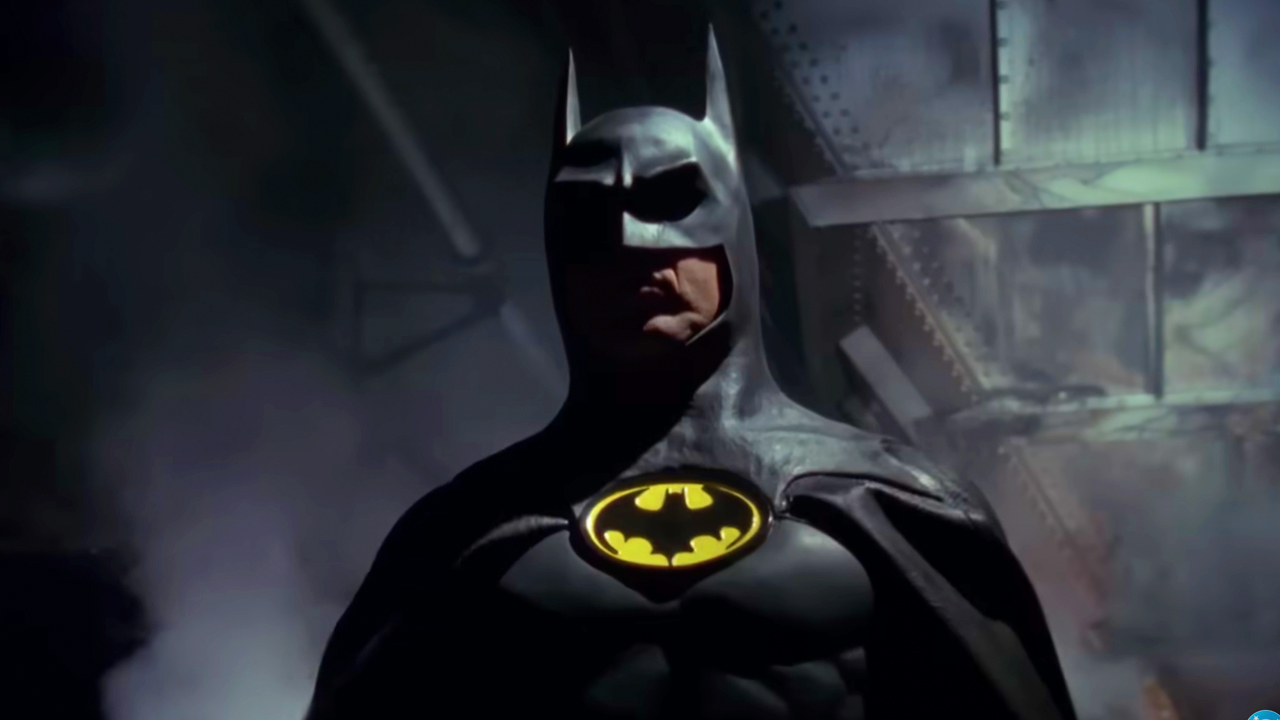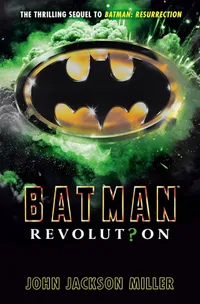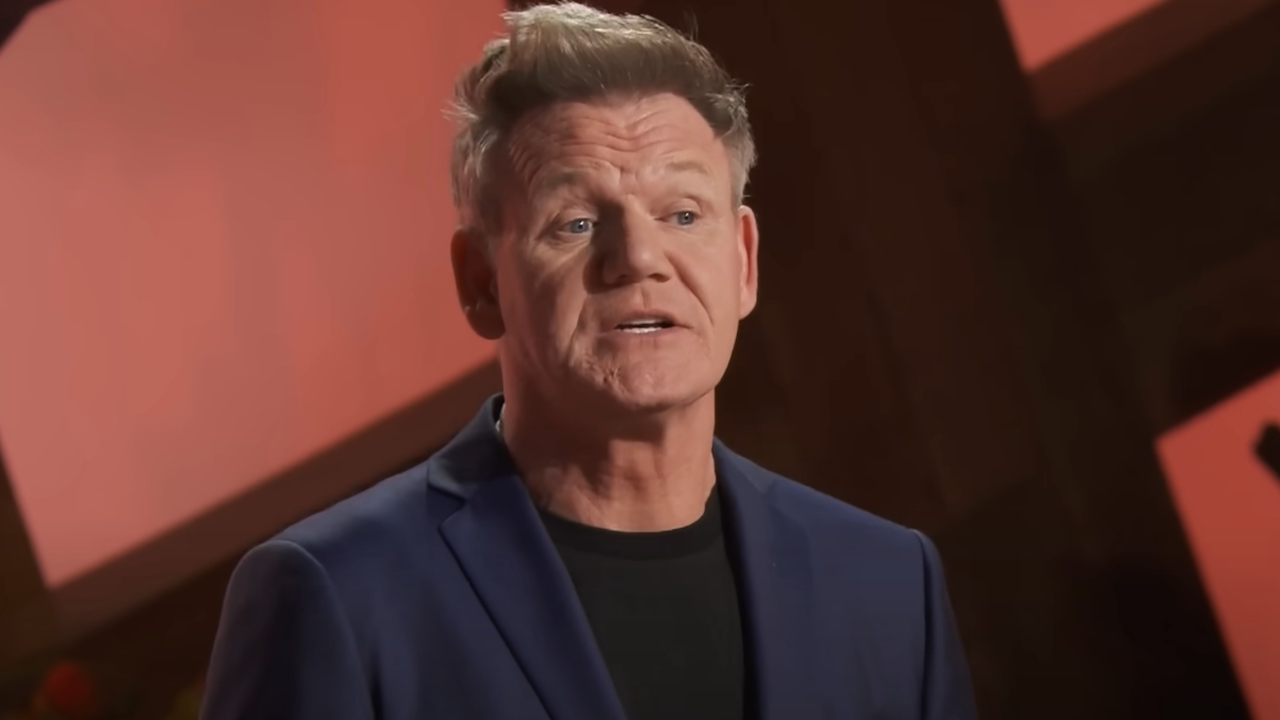As A Fan Of Tim Burton’s Batman, I’m Impressed By Revolution’s Writer Explaining To Me Why It’s ‘The Most Important Comic Book Movie Ever Made’
He got nuts... with some good points.

In 1989, director Tim Burton delivered Batman, which saw Michael Keaton’s title character clashing with Jack Nicholson’s Joker. While not the first superhero movie by any stretch or even the first theatrical Batman movie, the first of Burton’s two features about DC Comics’ Caped Crusader was more than just a critical and commercial success; it was a worldwide phenomenon. In fact, Batman: Revolution author John Jackson Miller proclaimed Batman to be “the most important comic book movie ever made” while speaking with CinemaBlend.
Revolution is the second in Miller’s duology of novels that takes place between Batman and Batman Returns, with the Resurrection sequel introducing a new Riddler and featuring two especially deep-cut villains. Knowing what a Batman superfan Miller is, I asked him during our recent interview why he thinks the DC movie has so much staying power after all this time. He began by saying:
Batman ’89 is the most important comic book movie ever made. It is the movie that told Hollywood and its producers, and also the general public, that comic books could be more serious, that the comic books were more serious, that superheroes did not have to always be done as camp or satirical or something like that.
John Jackson Miller recalled to me a TV Guide review for The Incredible Hulk TV series where the critic took issue with it being so serious and said it would have been better if the show had been “campy and goofy.” And yet, The Incredible Hulk was the most successful comic book TV show after the Adam West and Burt Ward-led Batman at the time, despite the fact that, as Miller noted, it’s “probably the least like the comic book of any of the comic book TV shows.” The author also mentioned that while the first two Christoper Reeves Superman movies did help pave the way for Batman, it was the comic book direct market that showed people in the ‘80s that “comic books could be about more things, and that comic book movies could be different than they were.”
After you've read Batman: Resurrection, check out Batman: Revolution to see more of Bruce Wayne's adventures in this Burton-Verse prior to when The Penguin and Catwoman started causing trouble in Gotham City.
To that end, John Jackson Miller praised producer Michael Ulan as the “hero of the story” because he obtained the Batman film rights and insisted that the character be handled “as seriously as possible.” So despite some initial backlash to Michael Keaton playing Batman and Tim Burton helming the movie, taking this approach paid off big time and influenced other comic book film productions. Miller specifically noted how Teenage Mutant Ninja Turtles wouldn’t have gotten a wide release, Dick Tracy wouldn’t have modeled its marketing after Batman’s, and projects like the short-lived The Flash TV series, The Rocketeer, The Crow and maybe even Batman: The Animated Series wouldn’t have happened. He continued:
How can you imagine that these pictures would have been greenlit without Batman and its $48 million opening weekend in the summer of 1989? So I think this film for people who were there, like me, really does stand out, that both films stand out as being a watershed moment, for comics in general. And then, of course, the story is great, the acting is great, the world that is depicted is completely unique, and it plays on the Batman mythology in ways that fit. It left people wanting more, and that gave us a chance to do a couple of books and to pretend like we were actually out in 1990 and 1991.
Batman’s $411 million+ box office haul was more than enough to warrant Warner Bros. Pictures greenlighting Batman Returns. While that 1992 flick wasn’t as successful as its predecessor, which then led to the less well-received Joel Schumacher movies, it’s safe to say we wouldn’t still be getting live-action Batman movies decades later if that first entry hadn’t hit so hard. More importantly to John Jackson Miller, though, is that Batman is the reason why the comic book movie genre is still thriving to this day.
So now if you’re inclined, break out your HBO Max subscription to watch the late ‘80s superhero classic, and pick up Batman: Revolution wherever you purchase your books. Don’t forget there’s also the Batman ’89: Shadows and Batman ’89: Echoes comic book miniseries to read. They both take place after Batman Returns and, like Resurrection and Revolution, exist separately from Batman Forever and Batman & Robin.
Your Daily Blend of Entertainment News

Connoisseur of Marvel, DC, Star Wars, John Wick, MonsterVerse and Doctor Who lore, Adam is a Senior Content Producer at CinemaBlend. He started working for the site back in late 2014 writing exclusively comic book movie and TV-related articles, and along with branching out into other genres, he also made the jump to editing. Along with his writing and editing duties, as well as interviewing creative talent from time to time, he also oversees the assignment of movie-related features. He graduated from the University of Oregon with a degree in Journalism, and he’s been sourced numerous times on Wikipedia. He's aware he looks like Harry Potter and Clark Kent.
You must confirm your public display name before commenting
Please logout and then login again, you will then be prompted to enter your display name.

